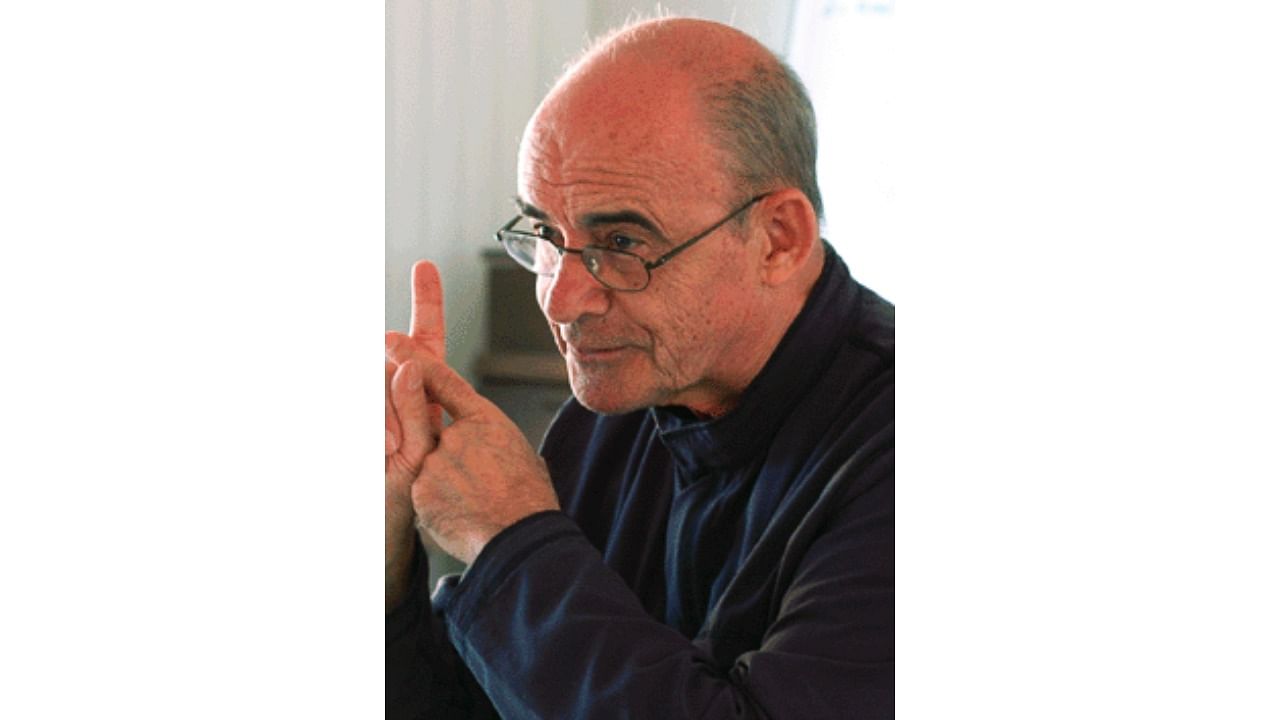
One of the most influential French philosophers, Jean-Luc Nancy, who slept forever on August 23, 2021, leaves behind resonant vibrations of thoughts about tenderness, love and death, which do not flounder
in the existential anomie of his being a 'heart transplant'. Nancy celebrated his transplanted heart much like the resurrected body of Jesus, to which Jesus quipped, "do not touch me".
Death, for Nancy, then, is touching my 'body' and its transplants without touching it, which makes it into an other body, an un-touch-able body. Similar to Antonin Artaud's exploration of 'true freedom' in a 'body without organs', the heart, for Nancy, is the only part to which an outside opens itself. All experiences of the world, therefore, necessarily are 'experiences of the heart'.
The heart knows the truth of the body, as Nancy muttered, "if it is an other, it is a body", and further, "an Other is a body, because only a body is an other". The body as the other, for Nancy, emerges from 'the fall of sleep' like in Rimbaud's 'sleeper in the valley' who, "would say he is sleeping and that like any sleeper he has joined eternity: the reverse of time".
Nancy surmised that if only the dead could speak, he would say that he was sleeping. Such is the sleeping body that lies at the threshold of beings thrown, being "outstretched alone there, there, a here like nowhere". Death frees the body as the other, who lies in sleep to make the way for the transition from Nancy's 'being toward' to an indeterminate otherness.
Nancy's idea of death brings the body as the being that is perpetually held toward the other closer to his philosophical 'experience of the heart' that opens up to outside of being loved. Being recipients of
the love of the other, the heart 'breaks', per Nancy, when it watches over the dying and the dead. Such an experience of the heart is 'ruptured' in the web of tender relations of receiving love and then breaking,
or rendering itself somehow as a 'me' or 'I' in the outside that interweaves the experiences of many hearts of mourners in whose lips death falls into a 'tearful survival'. This is how death brings love and tenderness back to the 'face of the dead', which Nancy described as "all appearances appear without a trace". Giles Deleuze would have termed such appearances "thousand plateaus" of tenderness and love in inter-personal "body without organs".
Nancy's image of 'the fall of sleep' into death transfigures these 'thousand plateaus'. Are the Eros and Thanatos then suspended by putting to sleep the whole heart? How can a sleeping heart, the transplanted heart of Nancy, for example, reclaim its presence in being and world? Nancy would reflect on the social pathology of dying and deaths by "vowing' this heart to 'stopping of the heart".
Nancy saw the possibility of dreadful, horrific and gruesome experiences in the 'outside' that unfolds before one's heart an impossible passage to images of death in "heads kept buried beneath muddy waters", or to a"'soul without soul" that floats "lifeless over the field of battle or muck whose inanity an operating-room lamp garishly exposes".
Death, then, is an experience of an outside 'beyond all existent'. The body can make sense of Nancy's this notion of 'fall of death' or sleep only by taking a sojourn to an 'unseeable' outside of suffering and pain. It is only in the resurrected body of Jesus alone an exception is made, in which one can touch the 'un-touch-able'. This 'un-touch-able' as the debt of life to the gift of resurrection after death seemingly makes us tender, caring and loving towards the lives of others, which, per Nancy, is not reducible to mere drives and desires.
(The writer teaches Philosophy at North-Eastern Hill University, Shillong)
Disclaimer: The views expressed above are the author’s own. They do not necessarily reflect the views of DH.